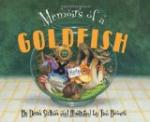However, with a strange perversity—due perhaps to our having the Declaration of Independence crammed down our throats as children—we in America seem obsessed with an ambition to create a social aristocracy, loudly proclaimed as founded on achievement, which, in point of fact, is based on nothing but the possession of money. The achievement that most certainly lands one among the crowned heads of the American nobility is admittedly the achievement of having acquired in some way or other about five million dollars; and it is immaterial whether its possessor got it by hard work, inheritance, marriage or the invention of a porous plaster.
In the wider circle of New York society are to be found a considerable number of amiable persons who have bought their position by the lavish expenditure of money amassed through the clever advertising and sale of table relishes, throat emollients, fireside novels, canned edibles, cigarettes, and chewing tobacco. The money was no doubt legitimately earned. The patent-medicine man and the millionaire tailor have my entire respect. I do not sneer at honest wealth acquired by these humble means. The rise—if it be a rise—of these and others like them is superficial evidence, perhaps, that ours is a democracy. Looking deeper, we see that it is, in fact, proof of our utter and shameless snobbery.
Most of these people are in society not on account of their personal qualities, or even by virtue of the excellence of their cut plug or throat wash which, in truth, may be a real boon to mankind—but because they have that most imperative of all necessities—money. The achievement by which they have become aristocrats is not the kind of achievement that should have entitled them to the distinction which is theirs. They are received and entertained for no other reason whatever save that they can receive and entertain in return. Their bank accounts are at the disposal of the other aristocrats—and so are their houses, automobiles and yachts. The brevet of nobility—by achievement—is conferred on them, and the American people read of their comings and goings, their balls, dinners and other festivities with consuming and reverent interest. Most dangerously significant of all is the fact that, so long as the applicant for social honors has the money, the method by which he got it, however reprehensible, is usually overlooked. That a man is a thief, so long as he has stolen enough, does not impair his desirability. The achievement of wealth is sufficient in itself to entitle him to a seat in the American House of Lords.
A substantial portion of the entertaining that takes place on Fifth Avenue is paid for out of pilfered money. Ten years ago this rhetorical remark would have been sneered at as demagogic. To-day everybody knows that it is simply the fact. Yet we continue to eat with entire unconcern the dinners that have, as it were, been abstracted from the dinner-pails of the poor. I cannot conduct an investigation




